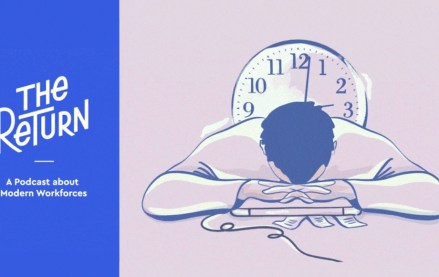
As part of an ongoing Digiday series of anonymous industry confessions, a young art director dishes on the state of his business. Not revealing his identity frees him up to share his thoughts on why he left agency life to go in-house with a major brand, why bad copywriters are “useless,” and why so many young creatives aren’t any good. Excerpts:
What’s the worst thing about an art director?
The worst thing about it is being in the middle territory where you are responsible for coming up with all of the ideas and executing them. But you’re not getting any of the credit for executing on them, which goes to the people below you, or the ideas, which goes to the people above you who approved those ideas. It’s a thankless job.
Do creative leaders do enough to develop young talent?
No. Junior talent at advertising agencies are treated like total dog shit. The expectation is that they work long hours and work really hard, but without being taught any of the skills that make them promotable. Creative directors pull the people that just naturally have those skills to be promoted regardless of whether they work the hardest. I’ve worked with people who’ve worked 10 years at the same agency who’ve only gotten promoted three times. And I’ve seen people who have not stayed at a single agency for more than a few years, and they get promoted over and over and over again in that span of time. Talent only means something at the very lowest levels.
What surprised you most about agencies?
How easy copywriters have it. Copywriters have the easiest jobs in the advertising agency. Media planers get a bunch of shit because their job seems really easy and they get all these perks, like tickets, but they’re paid nothing at all. At the end of the day, you have to realize that as a senior art director, you’re making almost as much money as the vp of media.
You sound a little bitter about copywriters.
I don’t think I can say enough about how useless bad copywriters are. Copywriters that are excellent at their jobs, it’s unheralded how important they are in the process and how much they can affect a project in a positive way. But at the same time, 95 percent of copywriters are just people who have a general understanding of grammar and/or spelling. Their job really comes down to putting in writing things other people have said out loud and making sure it’s grammatically correct.
Why’d you move to the brand side?
The clients have all the power in the equation, and too many agencies are afraid to let go of their clients. I wanted to be in a position where I could decide the type of work that I was making for a brand.
Is it more boring to work for a brand or less boring?
Probably more technically boring in that the work is more redundant. If you’re a junior at an ad agency, I can imagine that that’s really fucking boring. I’ll never be able to pitch new clients at a brand, so it’s probably the same flavor. But, that said, the projects that I’m working on actually get made, and they’re actually going to look like how I wanted them to be made.
What can agencies do better to appeal to young creative people?
Agencies have to want to be creative in order to want to start to have that conversation. There are a lot of agencies that although they might think of themselves as creative, they sell a package. Clients are buying a whole suite of things, instead of just creative. So it doesn’t matter if the creative is good. The biggest problem, though, is with young creative talent itself. They don’t study anything meaningful. They get degrees in communications, whatever that means, and then they go to grad school at the Portfolio Center for a one-year graduate design degree. And they’re not capable of designing anything or proving that they have any real taste. All they’ve proven is that they know agencies and that they know about advertising projects that have existed.
Read other confessions here.
Image via Flickr
More in Marketing

With the rise of the chief AI officer, it’s time to examine ‘czar’ culture
Even if it’s a familiar pattern — hot new thing, new C-Suite exec to tackle said thing, a few years go by and that C-Suite position no longer exists as everyone is now doing said thing (or it was a fad that has since faded away) — does it make sense for businesses to continue to appoint new czars with every new trend?

Why Cava’s bid for brand awareness means prioritizing streaming ads
Fast-casual restaurant chain Cava has been in growth mode over the past year and is leaning into streaming ads in an effort to boost brand awareness.

A history of middle manager stress: The Return podcast, season 3, episode 1
In episode one, McKinsey partner Emily Field tells us more about why middle management is critically important to the workforce.





